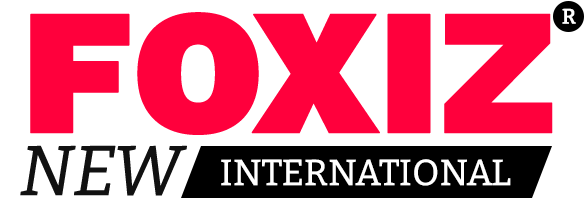It is always overwhelming to choose the right car insurance policy or even renew your policy if you have not done so for a long time or even at all if you are a new driver. In this wealth of choices, you have to know what coverage is essential to ensure you and your car and your money. In this ultimate guide, we will discuss all the fundamentals of car insurance coverage so that you could make the best decision regarding your policy.
The Basics: Third Party Liability
In essence, car insurance is meant to shield you from monetary loss in the occurrence of an accident or any other mishap concerning your car. The simplest and basic level of insurance, which is actually compulsory in most countries, is third-party liability insurance.
This is the minimum level of automobile insurance that shields you from claims by other people for bodily injury or property damage caused by a crash for which you are to blame. It’s the legal requirement to be able to drive on the roads but is it sufficient?
Even if third-party liability seems enough, especially if you want to save some money, there is a thing you should know: this insurance does not compensate for the damage to your car or your injuries. It is for these drivers that this level of protection is not sufficient.

Comprehensive Coverage: Peace of Mind
Comprehensive coverage provides a substantial improvement for individuals looking for stronger protection. Insurance of this kind usually covers all the same things as Third Party Liability, plus damage to your own car in the event of an accident, theft, vandalism, or other non-collision incident.
Comprehensive coverage can be particularly valuable if:
- You have a new or expensive vehicle
- You live in an area with high rates of vehicle theft or vandalism
- You frequently park in public spaces
- You want peace of mind knowing you’re protected against a wide range of potential incidents
In most cases, full coverage will cost more than basic Third Party Liability, but the extra security it provides may be worthwhile. You may customise your policy to fit your demands and budget with insurers like Assuréo who offer different levels of comprehensive coverage.
Collision Coverage: Protecting Your Investment
Another part of the car insurance is the collision coverage. This type of coverage is for damages to your car that occur from a collision with another car or an object, whether you are at fault or not.
If you are financing or leasing a car, your financing company will usually demand you have collision insurance. Collision coverage can be beneficial even if you own your car, free and clear, especially if the car is expensive or if you couldn’t readily pay to fix or replace it.

Personal Injury Protection: Safeguarding Your Health
Whereas the previously discussed coverages are mainly concerned with the loss of property, Personal Injury Protection, or PIP, as the name suggests, protects the policyholder and occupants of the policyholder’s car in case of an accident against medical expenses. This can comprise factors such as medical expenses, including hospital bills, lost wages due to the accident, funerals and other burial expenses.
PIP is especially useful in the countries or states that have no-fault insurance systems in which each party pays for his/her medical bills out of his/her insurance policy.
Additional Coverages to Consider
Depending on your specific situation, you may wish to explore other possibilities beyond these basic forms of coverage:
- Uninsured/Underinsured Motorist Coverage: In the event that you are involved in an accident caused by a driver without insurance or with inadequate coverage, this will safeguard you.
- Roadside Assistance: If you often drive long distances or have an older vehicle that is prone to breakdowns, this could be a lifesaver.
- Rental Car Coverage: This coverage guarantees that you will have access to a substitute vehicle while your damaged vehicle is being repaired.
- Gap Insurance: This coverage helps bridge the gap between your loan balance and the value of your totalled vehicle, which is important for those with auto loans.

Choosing the Right Coverage for You
Finding out what level of coverage is sufficient for your circumstances is the question of protection against potential risks and cost. It may be tempting to go for the lowest levels to cut costs but one should consider the possible consequences of an accident and so on.
Think about the following when you choose your coverage:
- The value of your vehicle
- Your driving habits and typical mileage
- Where you live and park your car
- Your personal financial situation and ability to cover unexpected expenses
Insurance needs can also vary from one period to another; in other words, it is dynamic. It is advisable to occasionally review your policy as and when you change your lifestyle to determine whether the policy is still suitable for you.

Getting the Best Value for Your Money
The following stage, after deciding on the necessary coverage, is to locate the best value. Although cost is a major concern, it shouldn’t take precedence over all others. Find an insurance company that meets all of your needs in terms of affordable rates, thorough coverage, and helpful customer care representatives.
Quick and personalised quotes are made easy with online tools offered by several insurers, such as L’olivier Assurance. If you want to get the greatest coverage for your needs and budget, this is a good approach to compare your alternatives.
Do not think that cheap is the most valuable policy to have. Other important aspects to look at include the ability of the insurer to handle claims, the discounts offered and the ability to manage your policy.
Conclusion
It is, therefore, important to ensure that you understand the various aspects of car insurance coverage to enable you to make the right decision on the policy that you need. It may be somewhat confusing when one starts out to make a comparison but with a little effort, one can be able to identify the various types of coverage and how they would meet the needs of a particular situation in terms of the amount of coverage and how much one is willing to spend.
Of course, the purpose of car insurance is not only to correspond to the legal standards but also to give you confidence and cover your expenses in case of an accident or some other occurrence. If you take your time to analyze your requirements and the available choices, you will be in a good position to choose the right insurance that will enable you to drive with a lot of confidence.
For those who are new to drivers and getting their first insurance or those who are seasoned motorists who are considering a new insurance policy, it is always important to consult insurance experts. They can assist you in sorting out the issues related to car insurance and getting a policy that would suit you best.










